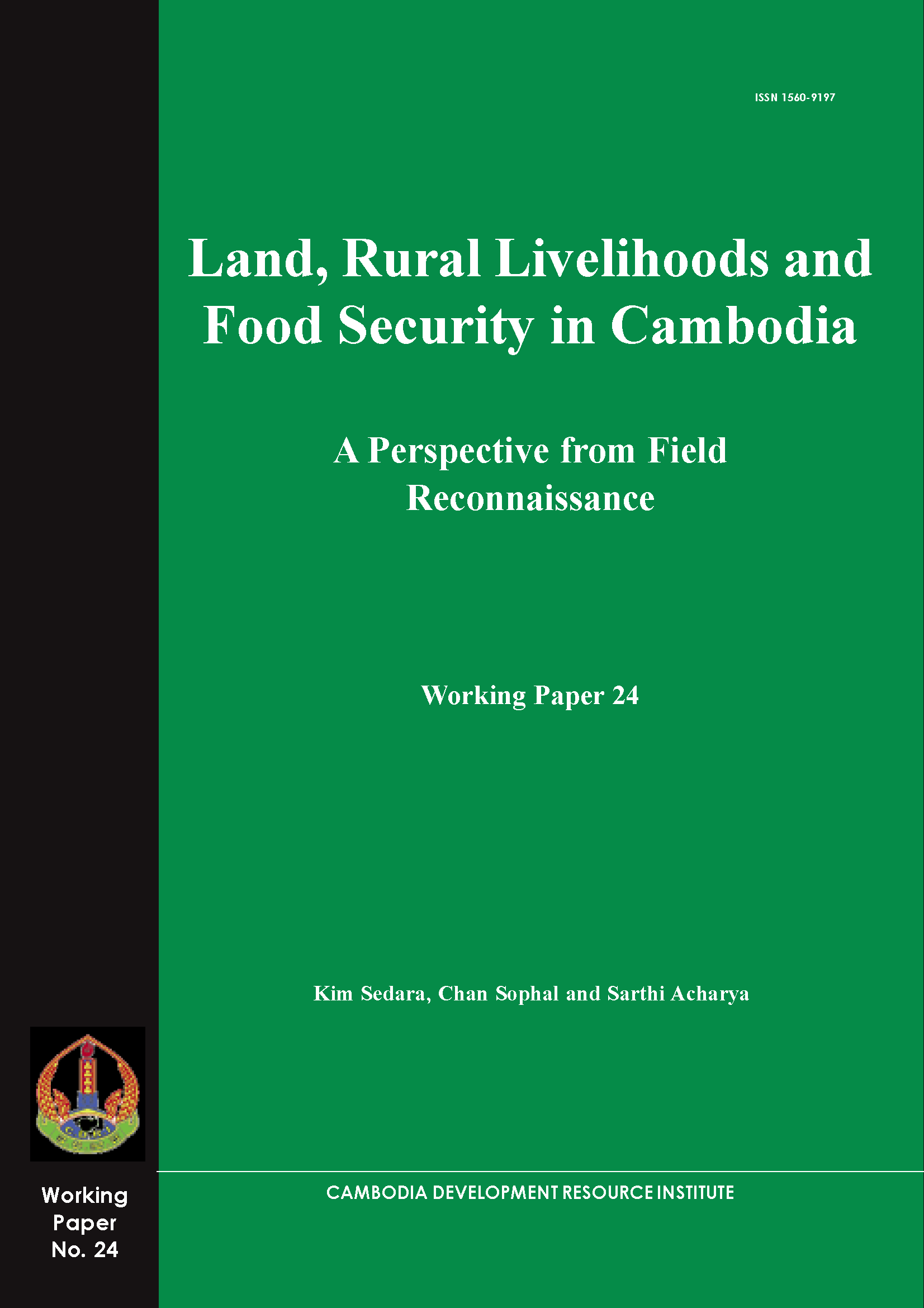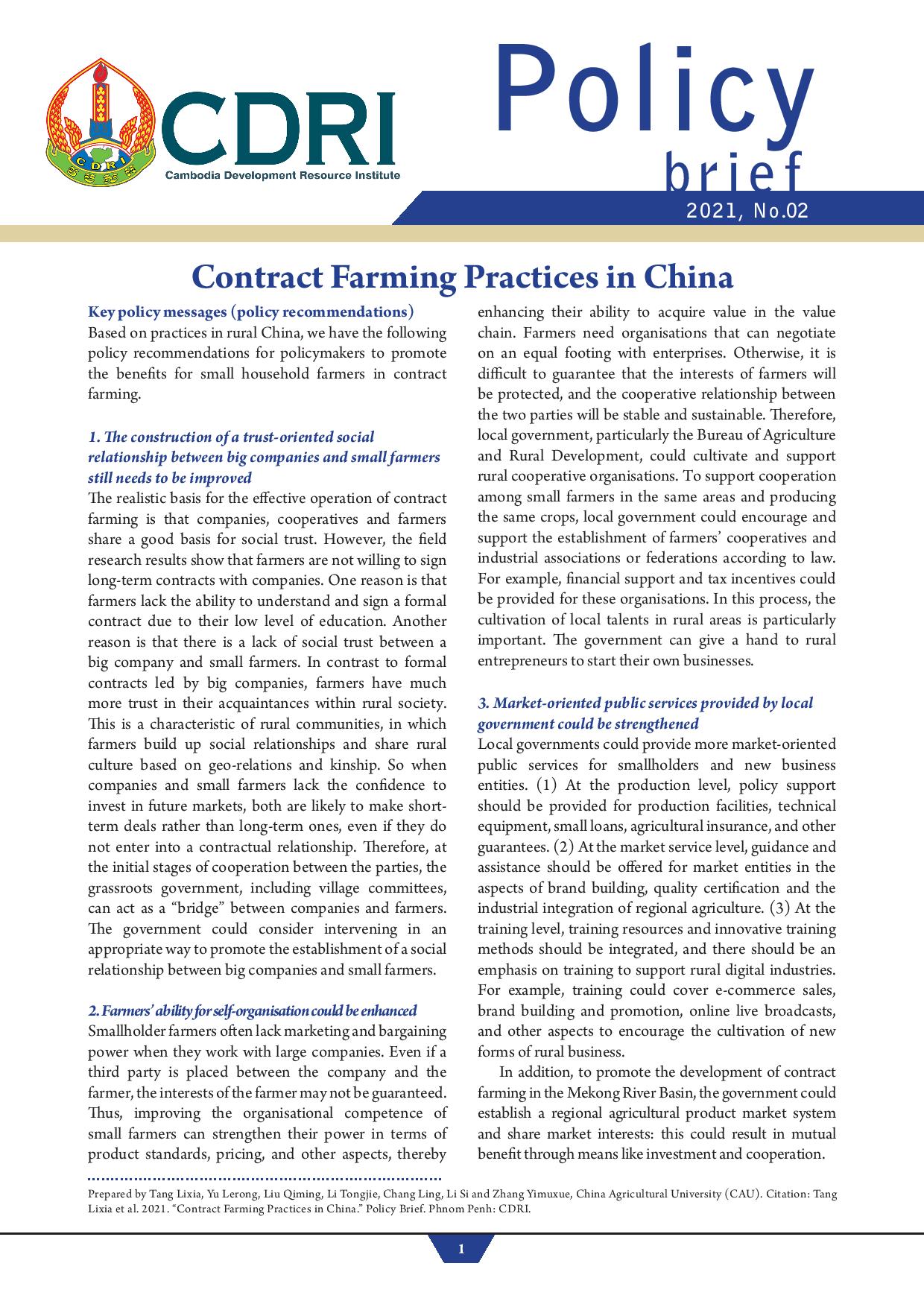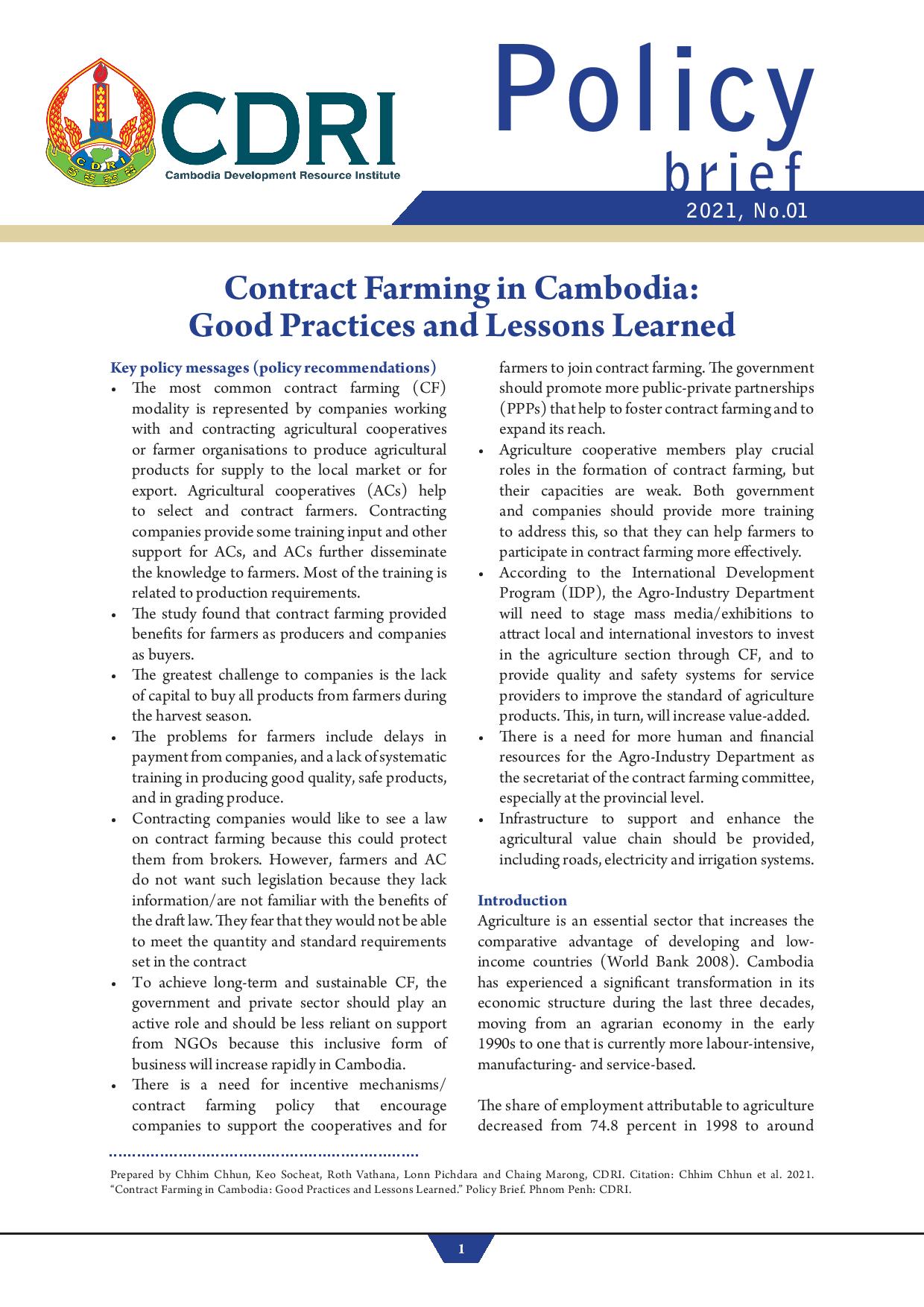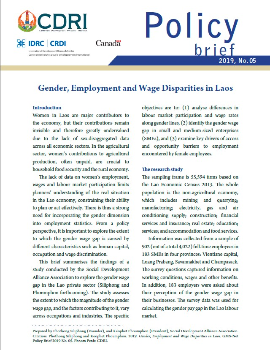
Land, Rural Livelihoods and Food Security in Cambodia: A Perspective from Field Reconnaissance
Keyword: Rural livelihoods, land inequality, food security, natural resource management, agricultural Mmdernisation
Khmer PDF (6)
Abstract/Summary
This working paper presents findings from field studies conducted in six Cambodian villages to assess rural livelihoods, land use, and food security. Despite an initially equitable land distribution following de-collectivisation in 1989, the study reveals growing land inequality and landlessness, exacerbated by population growth, land atomisation, and market pressures. Small farmers face declining productivity due to limited access to irrigation, modern inputs, and mechanisation, while larger farmers benefit disproportionately. Natural resources such as forests and fisheries are under strain from overexploitation and privatization, reducing their role as safety nets for the poor. Market imperfections, including monopolistic control and unfavourable terms of trade, further disadvantage small producers. Migration—both internal and cross-border—has become a key coping strategy, though wages remain low and opportunities limited. The study calls for systemic policy interventions, including agricultural modernization, market reform, tenure security, sustainable resource management, and expansion of non-farm employment. These recommendations aim to improve food security and livelihoods in Cambodia’s rural areas through holistic and inclusive development strategies.



